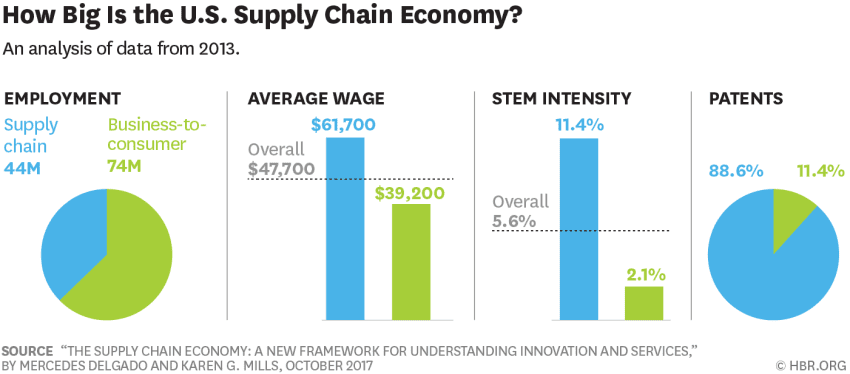Managing a Personal Crisis, and More – Boston News

What’s going on in Boston this week?
How to Manage an Employee Who’s Having a Personal Crisis – Harvard Business Review
The Harvard Business Review recently explored how managers can best support employees to “take care of themselves emotionally while also making sure they are doing their work.”
Annie McKee, author of How to Be Happy at Work and a senior fellow at Penn’s Graduate School of Education, offers three helpful suggestions:
- Set a tone of compassion in the office. It will not only give your employees confidence to approach you with struggles, but also give you the ability to spot warnings signs.
- Be creative with solutions. A flexible schedule may allow a person to maintain their output without much disruption.
- Check in from time to time, both to reassure the employee and to make sure that further adjustments or accommodations aren’t needed.
You can read the full article over at HBR.
Agile at Scale, Explained – MIT Sloan Newsroom
MIT Center for Information Systems Research’s Kristine Dery is currently studying how agile management—the increasingly popular management methodology adopted by the likes of Microsoft, Ericsson, and Spotify—relates to the employee experience.
MIT Sloan School of Management senior lecturer and industry liaison Carine Simon writes, “The traditional method of managing, the waterfall method, which is very inflexible, planned-in-advance, linear, and not iterative at all, wasn’t lending itself at all to the flexibility and the adjustments that were necessary to make great software.”
Simon adds, “[Agile is] iterating with customer feedback, prototypes, and tests, versus taking some requirements and issuing the product maybe a year later, when the customer’s requirements have changed or technology has evolved.”
Many companies have taken note of agile’s prevalence and begun to “ask whether the method’s practices and philosophies could be scaled up to apply with equal success to other projects or even entire business functions,” according to Simon and Dery.
Simon continues, “In customer-centric processes where customer input is key, and in that sense it’s quite uncertain or fast-changing, then those would be the types of areas in a firm that lend themselves to agile.”
Check out the full article here.
Questrom Professor Named 2018-19 Batten Fellow – Questrom Blog
BU Questrom School of Business‘ Siobhan O’Mahony was recently awarded a 2018-19 Batten Fellowship by the Batten Institute for Entrepreneurship and Innovation at University of Virginia Darden School of Business.
The Batten Fellows program, according to Darden, “provides support for prominent thought leaders and high-potential scholars who seek to generate new knowledge about entrepreneurship and innovation.”
O’Mahony, an Associate Professor of Strategy & Innovation and Academic Director of Research and Curriculum for Innovate@BU, explores how “technical and creative projects organize for innovation.”
O’Mahony plans to use her fellowship to “research entrepreneurial ecosystems and how those systems influence entrepreneurs and their efforts around venture creation.”
Read all about O’Mahony’s fellowship as part of the full article here.
Can Society Keep Up with Tech Entrepreneurs? – Boston News

Let’s explore some of the most interesting stories that have emerged from Boston business schools this week.
When Technology Gets Ahead of Society – Harvard Business Review
The Harvard Business Review recently dove into work by professor and Harvard‘s Lakshmi Mittal South Asia Institute Director Tarun Khanna that examines tech entrepreneurs’ “insouciance about the legal and social issues their innovations birth.”
Khanna explains that one pervasive issue we are collectively trying to negotiate is that necessary “regulatory, logistical, and social barriers” often struggle to keep pace with new and increasingly disruptive technologies.
“Although electric cars are subsidized by the federal government, Tesla has run afoul of state and local regulations because it bypasses conventional dealers to sell directly to consumers. Facebook is only now facing up to major regulatory concerns about its use of data, despite being massively successful with users and advertisers.”
Khanna argues that instead of shortening the “period between the advent of a technology and the emergence of the rules and new behaviors that allow society to embrace its possibilities,” Khanna encourages tech leaders to “take more responsibility for the whole ecosystem and bring regulators and consumers along with them, all of society stands to benefit.”
You can check out the full article here.
Machine Learning Will Redesign, Not Replace, Work – MIT Sloan Newsroom
MIT Sloan’s Erik Brynjolfsson, Carnegie Mellon’s Tom Mitchell, and Daniel Rock, a doctoral candidate and researcher at the MIT Initiative on the Digital Economy, published new research in the American Economic Association Papers and Proceedings, which finds that automation will most likely replace “specific tasks within jobs, rather than entire occupations themselves.”
Brynjolfsson writes, for instance, about deep neural networks that are adept at “tasks involving predictive analytics, speech and image recognition, and natural language processing, among others.”
The researchers write, “Automation technologies have historically been the key driver of increased industrial productivity. They have also disrupted employment and the wage structure systematically.”
“However, our analysis suggests that machine learning will affect very different parts of the workforce than earlier waves of automation. Machine learning technology can transform many jobs in the economy, but full automation will be less significant than the re-engineering of processes and the reorganization of tasks.”
You can read the full article here.
Northeastern Recognized For Excellence in Fostering Entrepreneurship – D’Amore-McKim Blog
At its recent Symposium for Innovation and Entrepreneurship, the Deshpande Foundation bestowed its 2018 Entrepreneurial University Award on Northeastern for the school’s “overall excellence in innovation and entrepreneurship.”
The Deshpande Symposium assembles “policy planners, academics, and practitioners from around the globe to discuss best practices for integrating entrepreneurship through university and college communities.”
This marks the second time in four years that Northeastern was honored at the Deshpande Symposium, having won the 2015 Excellence in Student Engagement in Entrepreneurship award.
Of the Entrepreneurial University Award, D’Amore-McKim Dean Raj Echambadi writes, “We pride ourselves in creating and training ‘Chief Entrepreneurial Officers’ who think differently and are capable of solving the grand challenges of business and society in a global economy.”
“This award is a testament to the strength of experiential learning through the integration of rigorous classroom education and real-world entrepreneurial engagement.”
The full article can be found here.
MIT Examines the Appeal of Lying, and More – Boston News

Let’s explore some of the most interesting stories that have emerged from Boston business schools this week.
When the ‘Lying Demagogue’ is the Authentic Candidate – MIT Sloan Newsroom
One of the major questions in the post-Trump U.S. public discourse is how voters could possibly support a political figure that so brazenly bends the truth at every possible turn. In a new paper published in February’s American Sociological Review, MIT Sloan School of Management professor and deputy dean Ezra Zuckerman Sivan attempts to rationalize the appeal of a lying demagogue:
“When a candidate asserts an obvious untruth especially as part of a general attack on establishment norms, his anti-establishment listeners will pick up on his underlying message that the establishment is illegitimate and, therefore, that candidate will have an ‘authentic’ appeal despite the falsehoods and norm-breaking.”
Read more about Zuckerman Sivan’s research here.
What Most People Get Wrong About Men and Women – Harvard Business Review
The ongoing pay gap dialogue has inspired both men and women to step up and pressure the organizations that employ them to commit more aggressively to gender parity. In a recent Harvard Business Review article, HBS researchers Catherine H. Tinsley and Robin J. Ely explore the harmful rhetoric that drives many of these well-meaning initiatives and offer a four-step alternative approach for people to:
1) Question the narrative
2) Generate a plausible alternative explanation
3) Change the context and assess the results
4) Promote continual learning.
“The solution to women’s lagged advancement is not to fix women or their managers but to fix the conditions that undermine women and reinforce gender stereotypes. By taking an inquisitive, evidence-based approach to understanding behavior, companies can not only address gender disparities but also cultivate a learning orientation and a culture that gives all employees the opportunity to reach their full potential.”

“When people are less embedded, they are also less aware of opportunities for stretch assignments and promotions, and their supervisors may be in the dark about their ambitions. But when women fail to “lean in” and seek growth opportunities, it is easy to assume that they lack the confidence to do so—not that they lack pertinent information.” – Catherine H. Tinsley and Robin J. Ely
You can check out the full article here.
Unity in Diversity: The Babson Latin American Forum – Babson Blog
The Babson College F.W. Olin Graduate School of Business recently hosted its Latin American Forum, which featured esteemed guest speaker and Open English founder Andres Moreno, whose online platform teaches English, and Santa Teresa rum CEO Alberto Vollmer.
Moreno and Vollmer both used their lectures as an opportunity to examine how entrepreneurship can co-exist with social impact. Vollmer discussed the Alcatraz Rugby Project, a recognized program of social reintegration for young people with behavioral problems. Moreno chose to focus on how his delivers the best product and service to its consumers.
You read a more in-depth survey of the Babson Latin American Forum here.
MIT Sloan Debunks Entrepreneur Myths, and More – Boston News

Let’s explore some of the most interesting stories that have emerged from Boston business schools this week.
The 20-Year-Old Entrepreneur is a Lie – MIT Sloan Newsroom
MIT Sloan School of Business professor Pierre Azoulay and Ph.D. student Daniel Kim used a new working paper as an opportunity to debunk the myth of the 20-year-old Silicon Valley tech-prodigy entrepreneur. The reality is that the average age of successful entrepreneurs veers closer to 42. Azoulay elaborates:
“If you knew nothing else, and you had two identical ideas, one proposed by a very young person, one proposed by a middle-aged person, and that’s the only thing you have to go on, you would be better off—if you wanted to predict success—betting on a middle-aged person.”
Kim adds: “In theory, we know that with age a lot of benefits accumulate. For instance, you get a lot of human capital from experience, you also get more financial resources as you age, as well as social connections, all of which will likely boost your odds of success as an entrepreneur.”
Read more about the duo’s research here.
Case Study: Can This Japanese Snack Food Company Break into the U.S. Market? – Harvard Business Review
As part of a fictionalized case study, HBR recently published a profile on Kenko USA, the American subsidiary of Japan’s largest rice cracker producer, about its ongoing plans to enter the American market. Kenko USA hopes to become synonymous with rice crackers much in the same way that Kikkoman became inextricably linked with soy sauce.
In 2012, Riku Nakamura relocated from Tokyo to San Mateo, California to oversee the launch of Kenko’s first foreign subsidiary. According to the article, “Riku knew that the key was to expand beyond Asian supermarkets and grocery stores’ “international” sections and get Kenko crackers into the snack aisles of mainstream U.S. food outlets, but his team’s efforts had yet to bear fruit.”
You can read the entire case study here.
Hybrid Strategy Leaves Auto Industry Leaders Playing Catch-up, Professor Says – D’Amore McKim News & Research
There’s quite a bit of chatter within the auto industry about the so-called “hybrid trap” in which established industry leaders have been forced to catch up to the hybrid strategies of more aggressive startups to varying degrees of success.
Northeastern University D’Amore-McKim School of Business‘ Jean C. Tempel professor of entrepreneurship and innovation Fernando Suarez explored this phenomenon in detail as part of an MIT Sloan Management Review article. He elaborates:
“Most established corporations follow the hybrid approach because it gives them peace of mind. It allows incumbents to convince themselves that they’re responding to technology-driven transformation in their industry when, in fact, they’re losing ground. They fall back on learned patterns, which slows development. When you are serious about going the route of new technology, you have to rethink all of your designs and processes.”
Read more about Suarez’s research here.
MIT Explores Happiness, and More – Boston News

Let’s explore some of the most interesting stories that have emerged from Boston business schools this week.
Probing the Origins of Happiness – MIT Newsroom
On the #InternationalDayofHappiness, Kara Baskin at the MIT Sloan School of Management explored the new book “The Origins of Happiness: The Science of Well-Being over the Life Course,” which was co-authored by MIT Sloan Ph.D. student George Ward. Talking about his work, Ward explains how global governments have been attempting to tap into the data of happiness in hopes of shaping future policies.
“We wanted to bring together this body of work in a systematic, quantitative way,” he explains. “Often, these are single studies that say ‘x’ is important for happiness; ‘y’ is important for happiness. In this book we try to provide an overarching framework that documents what makes for a satisfying life.”
“On the policy side,” he continues, “more and more countries are using well-being data in the real world. As we speak to policymakers, they often ask the question: ‘Look, we’re measuring this now and we have the impetus to improve these figures, move up these tables of happiness, and make our citizens enjoy their lives more. What can we do?'”
You can read the rest of the Ward interview here, and grab a copy of “The Origins of Happiness: The Science of Well-Being over the Life Course” today.
The Supply Chain Economy and the Future of Good Jobs in America – Harvard Business Review
The Harvard Business Review recently published an article from Mercedes Delgado and Karen Mills that outlines the increased role service suppliers will play in what some have dubbed the “supply chain economy.” Supply chain industries are simply “businesses that manufacture parts to be used in a final good,” like plastic injection molders and metal stampers.

These industries “have a crucial role in driving innovation and creating well-paying jobs,” in part because they “have downstream linkages to multiple industries, which allows the innovations they create to cascade and diffuse across the economy, potentially increasing the value of those innovations.”
Read more about HBS’ policy suggestions to emphasize “suppliers’ access to skilled labor, buyers, and capital” here.
BU Grad Schools Among Nation’s Best – BU Today
Several schools in the Boston metro saw a nice rankings boost in the recently release U.S. News & World Report Best Business Schools 2019 list, with the Questrom School of Business at Boston University leaping up two spots overall from last year, up to 42nd overall. The school’s part-time program also finished 10 spots better than last year, coming in 32nd overall.
In a release, Kenneth Freeman, Allen Questrom Professor and Dean in Management, said, “Rankings are inherently imperfect, but we appreciate the acknowledgement of the quality and reputation of our students, program, and alumni. Each year, we adjust our curricular content in response to student needs and our increasingly engaged corporate partners to create experiential opportunities to bridge the classroom and industry.”
You can catch up on the rest of BU’s graduate schools in the new ranking here.
Thinkers50 Names Rotman Professor One of World’s Best Management Minds

Roger Martin, a professor and former dean at the Rotman School of Management at the University of Toronto, has been named the best management thinker in the world, according to Thinkers50.
